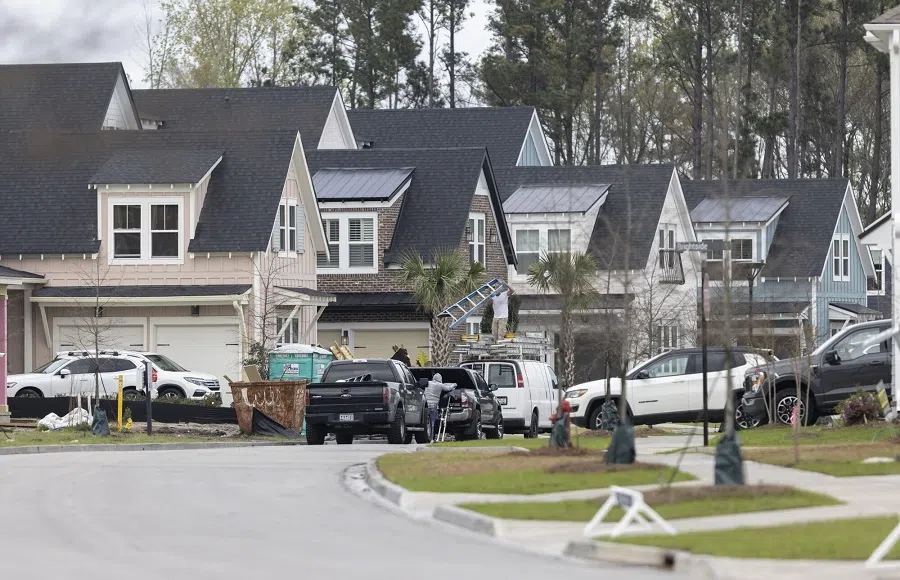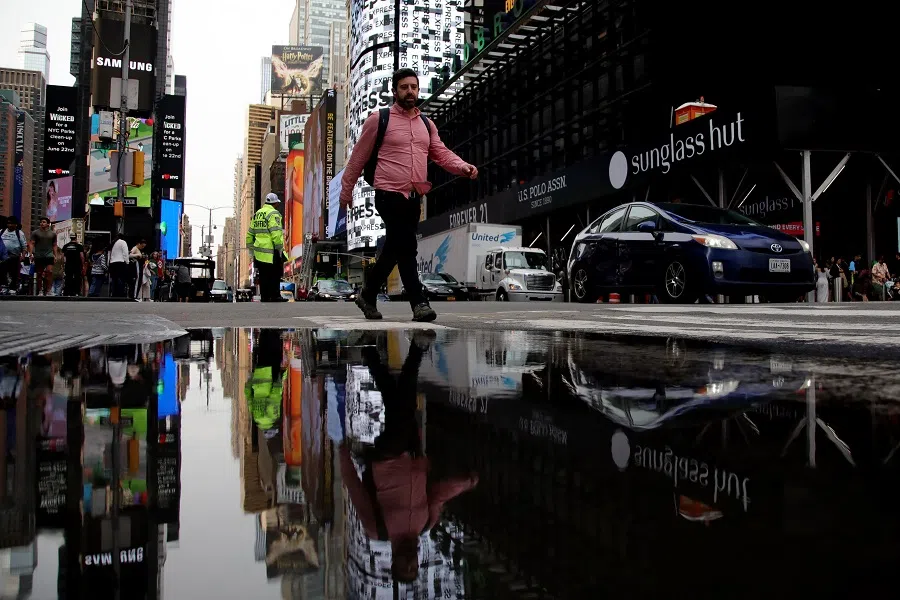Vast difference in expectations of local governments in the US and in China
Wu Guo notes that local governments in the US are rarely intrusive in the lives of residents, often getting involved only in matters of taxation, public environment and public health. But corruption and dereliction of duty does exist too, and Chinese immigrants may miss that if they do not cast off their utopian blinkers.

I have always been sceptical of Chinese immigrants' glossy portrayal of politics in their adopted Western countries. Often stressing on politicians' modest salaries and personal sacrifices, these people tend to put Western politicians on a pedestal, such that they can't understand why Westerners themselves distrust the government or accuse it of corruption and abuse of power.
Perhaps the bright picture painted by these Chinese settlers originates from their constant comparisons and mental associations with Chinese politics. Or perhaps it is due to their deeply ingrained moral expectations of Chinese officials, who are often judged by how "self-sacrificial" or "dedicated to their job" they are. They naturally pin their hopes on the morally perfect.
In this process, some people may be creating a "new utopia". Excessive praise lavished with zealotry creates quite a gap between what the immigrant Chinese perceive and what the locals see as reality.
A system that runs unnoticed
Looking at it from the fundamentals of democratic politics, staying alert about those in power, being fully aware that they could be corrupt or derelict in their duties, aligns with a basic understanding of human nature and the theory that power corrupts and so should be kept in check. As to the office-holders' motives for entering public service, be it to fulfil their own aspirations, for fame or out of a genuine desire to help people, these are actually secondary.
... we have never once heard our local American colleagues and friends mention anything about the mayor in the last 17 years. No one really cares about this.

It has been 17 years since I graduated from college and truly started integrating into American society after starting work, buying a house and raising a family in the US.
After living in the same small city for a long time, my true feeling is this: a typical small inland American city is basically run without the state's presence. In fact, I didn't know who the mayor was or whether a "city administrator" was looking after us. But that has no impact on my life. My wife and I both work, and we have never once heard our local American colleagues and friends mention anything about the mayor in the last 17 years. No one really cares about this.
Perhaps this is because, in a system based on the autonomy of the middle class, the average person hardly needs to deal with the government as long as he pays his taxes (federal, state and local income taxes and property taxes) according to the rules.
Local government bureaus only take up two floors of office space and residents can enter freely. Office staff are friendly and mainly responsible for notifying waste collection companies to remove bulky household items, replacing government-issued garbage cans, providing land survey satellite imagery and archiving land deeds.
My rare interactions with the government included arranging for the removal of a dead hare in my front yard and requesting satellite imagery to handle a boundary survey with my neighbour. But when it comes to doing the actual land survey to determine respective boundaries, a professional company would still be needed. And if a lawsuit needs to be filed for some reason, a law firm would be consulted. In any case, the government isn't really involved in such matters.
Municipal matters
Once, we received a warning letter from the government when we neglected to cut the grass near the gully within our grounds. The government demanded that we cut the grass within a certain time or we would be slapped with a fine. It was then that I realised that aside from the market having an invisible hand, the government, too, has a pair of invisible eyes.
If a property owner wishes to extend the grounds of his house and increase the actual usable floor area of his home, he would need to first gain government approval. After the works are done, the owner's property tax goes up and officers would drive around to check if illegal structures have been built. But government approval is not required to construct or extend a dividing fence on the boundary of one's own territory.
Even during the Covid-19 pandemic, it was also the governor's executive injunction that truly mattered - the county/city did not intervene as a government.

These experiences show that local governments in the US are heavily involved in matters of taxation, public environment and public health. Aside from household and individual affairs, local governments in the US are mainly in charge of repairing and expanding roads and bridges, maintaining police systems and schools, and applying for and granting social benefits.
Although local public libraries are public institutions, they generally appeal to readers for donations if they run into cash-flow problems. A library once asked for public donations in aid of its project to install air-conditioning, and also sends fundraising letters to readers every year. That is to say, libraries would not wait for the "higher-ups" to provide more funding but would instead canvass for funds and be self-reliant.
In China, apart from relying on allocated funding, local libraries and public welfare organisations can increase their revenue by getting the public to apply for library cards with a fee or by running certain for-profit events. But in the US, because library services are completely free, seeking public donations becomes a viable and commonly used method to increase revenue.
I think that American local governments have little authority and manage small populations, with many small towns having only a few tens of thousands of people. Typically, residents either earn a wage, receive welfare benefits or run their own businesses. There is rarely a need to rely on operating a small business such as a street stall for livelihood. Some may set up a stall at the farmers' market over the weekend but even then, stall owners could be computer engineers who grow and sell vegetables as a hobby rather than for a living.
This is perhaps entirely different from China's system. Even during the Covid-19 pandemic, it was also the governor's executive injunction that truly mattered - the county/city did not intervene as a government.
Corruption also exists in local government in the US, but this usually manifests itself in the use of public funds for personal use.
Avoiding the unnecessary utopia
However, in the American social milieu and system, not everyone who works in public service is a "saint" who dedicates himself to the job. Everyone has different dreams and aspiring politicians may start at the grassroots level to gain experience.
But American government officials receive substantial benefits, through health insurance, pension and other aspects that are invisible and unknown to the general public. These benefits go beyond their book value, which means that working for the government will never be a losing business.
This is to be expected because humans seek benefits - whether it's the visible high salary, the invisible welfare or the fame and connections, these are all different forms of capital. These carrots are reasonable wants and also necessary incentives for any organisation, including government agencies, to attract talent.

Corruption also exists in local government in the US, but this usually manifests itself in the use of public funds for personal use. In the area where I live, there was a scandal involving an official who reimbursed himself for his personal renovation expenses, which is a case of accounting fraud. He was later hounded by city council members and the media. This example also demonstrates that human weaknesses are prevalent and can only be overcome with transparency and supervision.
In American law, even if it is to do with researchers conducting social surveys, respondents cannot be paid more than US$20. This is all part of using the legal system to prevent the transfer of cash benefits. But because money is usually spent first before being reimbursed, it is easier to bypass the relevant legal and tax issues. That is why corruption in the US often happens in the form of "reimbursements". Hence, the work of monitoring and supervision must continue.
I hope that as some Chinese immigrants actively participate in politics, they would take an objective look at the actual workings of local politics in the countries they reside. Hopefully, they will remove some of their utopian blinkers and excessive moral projections that make them lose sight of the need to remain vigilant and wary of the government.
This article was first published in Lianhe Zaobao as "美国基层政府运作管窥".
Related: From Mao ideals to the American dream: What China's 'sent down youths' sacrificed to chase a better tomorrow | A Chinese professor in the US: Helping my son find his cultural roots | Why the Americans know China better than the Chinese know the US | US academic: Equality is a myth, whether in the US or China | Price of the American dream: Do immigrants have to forget their past?



![[Video] George Yeo: America’s deep pain — and why China won’t colonise](https://cassette.sphdigital.com.sg/image/thinkchina/15083e45d96c12390bdea6af2daf19fd9fcd875aa44a0f92796f34e3dad561cc)
![[Big read] When the Arctic opens, what happens to Singapore?](https://cassette.sphdigital.com.sg/image/thinkchina/da65edebca34645c711c55e83e9877109b3c53847ebb1305573974651df1d13a)
